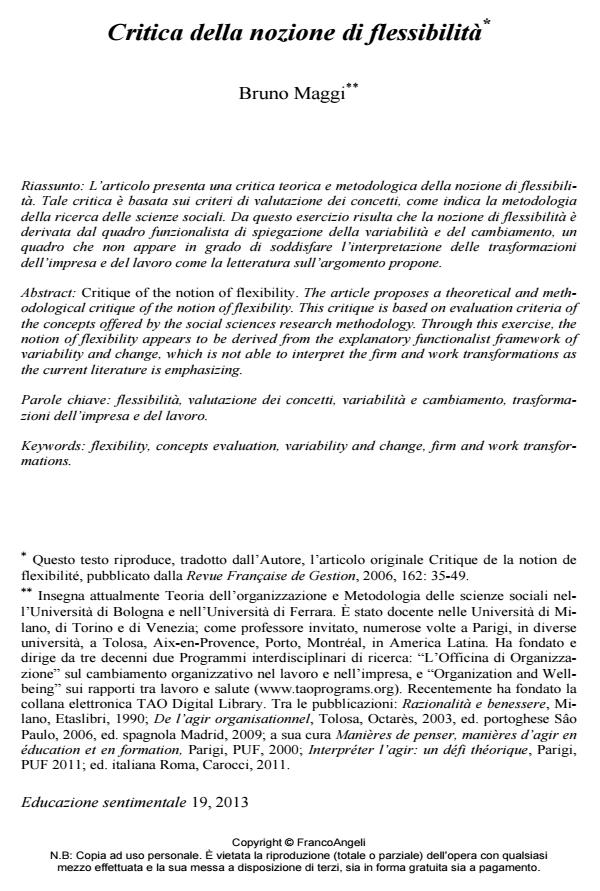Critique of the notion of flexibility
Journal title EDUCAZIONE SENTIMENTALE
Author/s Bruno Maggi
Publishing Year 2013 Issue 2013/19
Language Italian Pages 14 P. 54-67 File size 669 KB
DOI 10.3280/EDS2013-019007
DOI is like a bar code for intellectual property: to have more infomation
click here
Below, you can see the article first page
If you want to buy this article in PDF format, you can do it, following the instructions to buy download credits

FrancoAngeli is member of Publishers International Linking Association, Inc (PILA), a not-for-profit association which run the CrossRef service enabling links to and from online scholarly content.
The article proposes a theoretical and methodological critique of the notion of flexibility. This critique is based on evaluation criteria of the concepts offered by the social sciences research methodology. Through this exercise, the notion of flexibility appears to be derived from the explanatory functionalist framework of variability and change, which is not able to interpret the firm and work transformations as the current literature is emphasizing.
Keywords: Flexibility, concepts evaluation, variability and change, firm and work transformations
Bruno Maggi, Critica della nozione di flessibilità in "EDUCAZIONE SENTIMENTALE" 19/2013, pp 54-67, DOI: 10.3280/EDS2013-019007